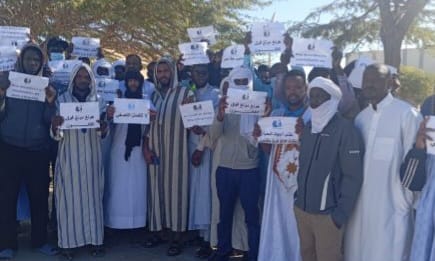Iraqi Government Announces Comprehensive Measures to Protect Delivery Workers’ Rights
In a landmark move to protect the rights of delivery workers and address the challenges they face, the Iraqi government has announced a comprehensive set of measures and directives aimed at regulating this sector and ensuring dignity and justice for its workers.
Key measures include:
• Establishing a national committee headed by an advisor to the Prime Minister, with representatives from all relevant authorities, to develop a comprehensive vision that guarantees workers’ rights and provides radical solutions to their challenges.
• Forming a union or association for delivery workers to follow up on their issues with government agencies.
• Drafting legislative amendments to include a clear legal definition of delivery work and the contractual relationship between drivers and companies to safeguard their rights.
• Extending legal protection to digital and flexible work, including those working through applications and electronic platforms.
• Requiring companies to register all employees under social security and health insurance, provide formal contracts certified by the Ministry of Labor, and supply personal safety equipment.
• Launching a government platform via the “Our” portal to register delivery workers, document their data, and safeguard their rights.
• Opening a direct complaints line at the Ministry of Labor to promptly address violations.
• Ensuring fair wages based on distance and time, with transparent financial policies for workers.
• Facilitating legal vehicle registration for motorcycles used in delivery work, with reduced fees to encourage lawful and safe operations.
The government affirmed that these measures aim to achieve social justice, protect a large segment of young workers in the digital and flexible economy, and guarantee their rights to health, safety, fair income, and retirement benefits.
The Arab Trade Union Confederation welcomed this important step, considering it a progressive model that can inspire other Arab countries to protect workers’ rights in the emerging digital economy.





